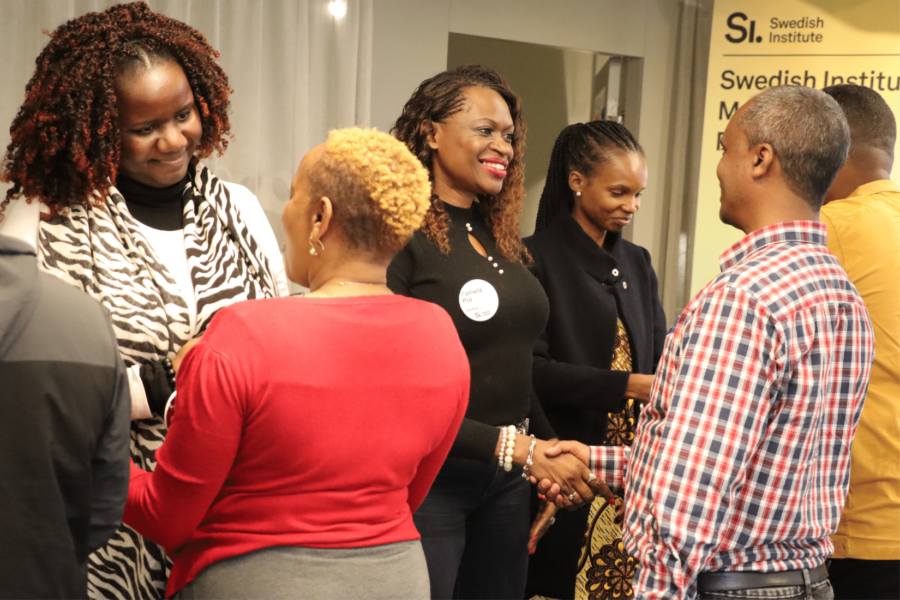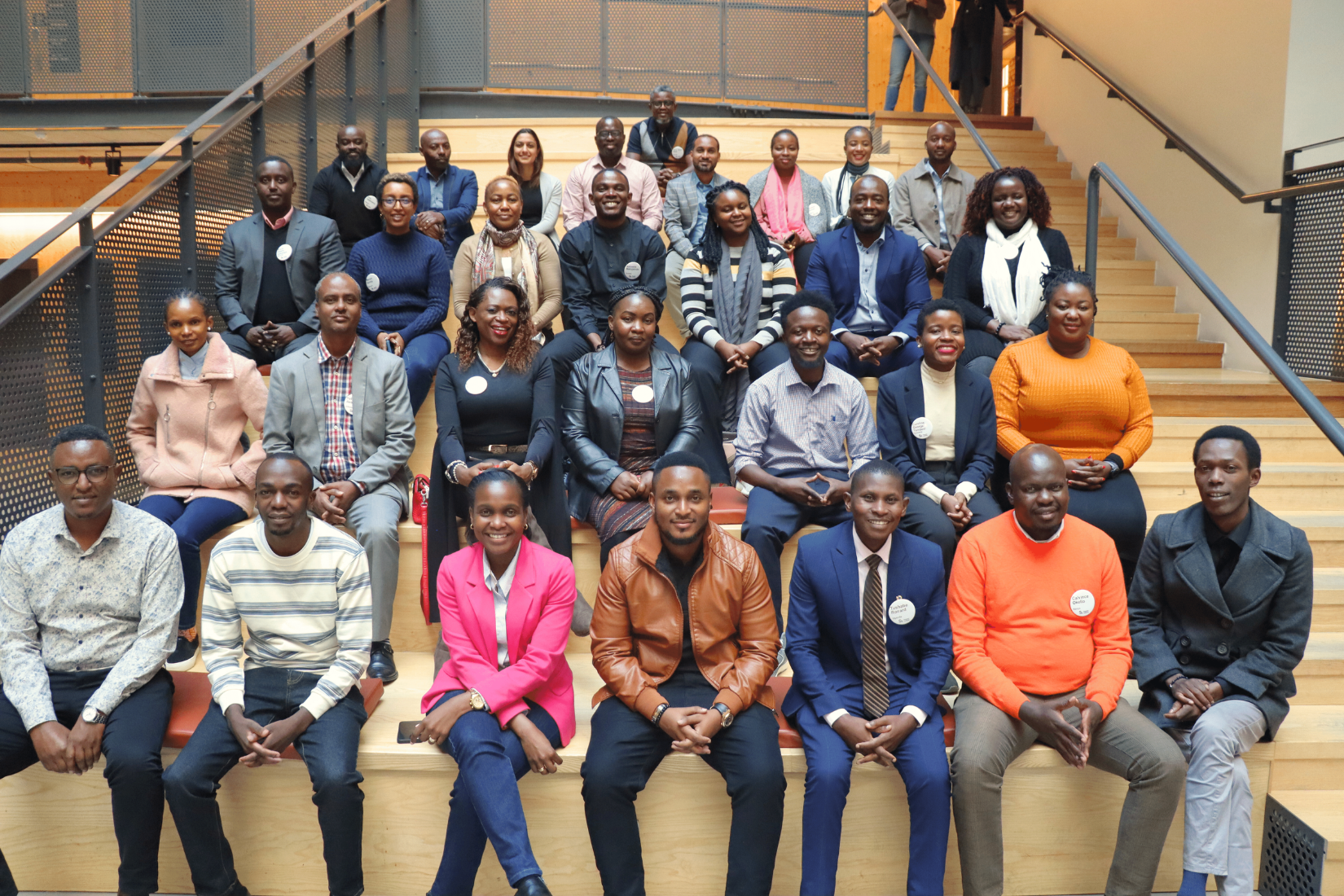Swedish Institute Management Programme (SIMP) is a leadership programme designed for ambitious and innovative business leaders who want to bridge the gap between desire and action on sustainability. The programme is carried out for six months through interactive online sessions and a meet-up in Sweden. Throughout the programme, participants are given a platform to share, discuss and learn theory and practice from experts in the field of sustainability, sustainable business, and responsible leadership. Sweden-week, the onsite meeting, provides the participants with the opportunity to experience sustainability in practice and exchange learnings with Swedish companies and experts.
One of the participants is Nushin Ghassmi Gilani from Kenya. Nushin is the Head of Sustainability and Communications at Industrial Promotion Services (IPS) and she leads the portfolio of sustainability across a group of companies in East Africa, West Africa and Central Asia. Nushin described Sweden-week as a fascinating experience and an opportunity to inspire the future sustainability efforts of her company:
– I think the exposure we had during Sweden-week is fascinating. We’ve been integrating sustainability in our operations at IPS, but we’ve really been looking at evolving our businesses where sustainability is our main purpose – to really become a purpose-driven organisation. The possibility to learn from Swedish companies has been exceptional. The visit to Stora Enso was an awakening that if we benchmarked ourselves against that, we are in the right direction.
– There is always this conversation among African companies that we need to develop, and we need to industrialise to build our economies. I’m a strong believer that we can actually do that in a green manner. Seeing companies here in Sweden being able to do that, has really reinforced my belief that we can do so too. I look at this experience and think: how do we take these pioneering efforts back to our region and really be catalytic leaders in the sectors that we are in. For me this has just been extremely enlightening and topping it up with lovely people, great experiences and buckets full of laughter.
This year’s participants had the opportunity to visit the county of Dalarna as well as Stockholm and experience how various businesses work with sustainability. Apart from Stora Enso, a global packaging company, the participants visited the local bank Leksands Sparbank; Dalarna Science Park, Falu Copper Mine and Fryshuset Foundation – a non-profit organisation working with youth empowerment and social sustainability.
Abella Bateyunga, Founder and Director of Tanzania Bora Initiative and Impact Hub Dar Es Salaam agrees with Nushin and shares how important it has been to see sustainability in practice:
– Before coming to this programme, I thought of sustainability as a luxury word. Being surrounded with so many needs around my community, for me sustainability felt like something extra that I had no energy for. But it has been really good to be part of this programme and to see sustainability at its best. I am taking so much home with me from my week in Sweden. Now I see sustainability in all I do. Sustainability is the climate, the economy, the rights and the people. Sustainability is in everyday life. It has been really good to get a sense of what sustainability is. Moving forward, I am excited to incorporate sustainability in my organisation implementation strategy.

What makes SI’s leadership programmes an important breeding ground for inspiration is also the composition of participants. SIMP Africa participants all have quite diverse backgrounds, they are everything from founders of companies to mid-level management with responsibility for sustainability, research, and development. Together they represent a wide range of sectors – telecommunication, finance, agriculture, mining, business incubators and more. Just the exchange between participants alone has been an opportunity to create a network of contacts in the region and in their home country explains Theophile Ishimwe, Due Diligence Officer at LuNa Smelter ltd – a high-quality tin supplier in Rwanda.
– The people I met were extremely nice and open-minded. I have developed good contact and extended my network. I’ve learned a lot from them as we could exchange ideas and thoughts very openly during SIMP.
Now the programme continues online as participants are guided through the creation of road maps to outline the implementation of their most important learnings and the steps they want to take within the next year.
